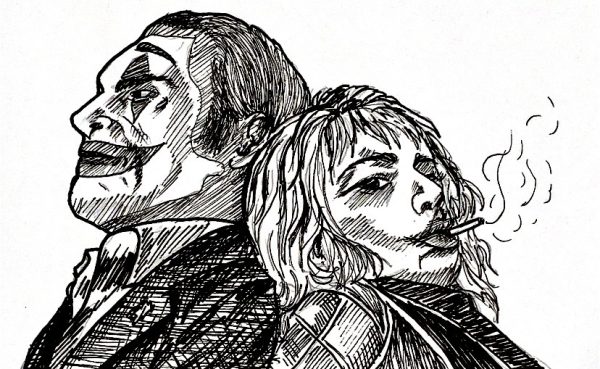The bittersweet taste of “feel good” Hallmark holiday movies
“Matchmaker Santa,” “Merry Matrimony,” “Window Wonderland,” “Once Upon a Holiday”: the list of Hallmark Christmas movies goes on and on. In fact, an IMDb page lists 133 such movies over the past 10 years. These movies have historically maintained a steady fan base, but the range of viewers seems to have grown. It’s not uncommon to hear your peers or friends talking about the Hallmark Christmas movie marathon they are looking forward to over the holiday break.
While Hallmark’s name is part of the genre, other entertainment companies also try to capitalize on the demand for feel-good holiday movies. Netflix has jumped into the feel-good romantic holiday movie pool with films like “A Prince for Christmas” and the series “The Princess Switch.” Cable television network Lifetime also releases their fair share of holiday movies, and they have historically included more diverse casting and storylines. But the basis of the stories are largely the same: family, traditions, romance, sweaters and remembering what is most important.
Often the objects of fair ridicule and criticism, these movies’ faults are part of the reason we embrace them. In his article for The Gospel Coalition, author and journalist Brett McCracken says Hallmark movies “are beautiful because they are formulaic in a good way and because they are simple and earnest in a chaotic, cynical world .… Simple and predictable isn’t always a bad thing.”
I would tend to agree with McCracken’s observations. Even though we can all probably recite the plot to at least one Hallmark Christmas movie — and therefore the vast majority of them — they have become a part of our holiday routines. With this in mind, I want to add some thoughts about the ways Hallmark movies shape our ideas of the “good life” and consequently teach us what to want.
As I mentioned above, one of the threads running through these holiday movies is the call to remember what is most important. It is easy to overlook the ways our “telos,” what we most desire and strive towards, is influenced. Our ideas about what matters most vary throughout our individual lives — may be oscillating between cliques and romantic relationships while in high school to future careers and building a better resume while in college.
In Hallmark Christmas movies, the family usually falls under this category of the most important things. A good amount of the stories begin with a disillusioned parent who is unhappy at their job and lacks a love life, and over the course of the film, they come to see the goodness in their life, young child and all. These movies fail to acknowledge that blood families can be difficult. Showing a holiday movie with more real family relationships probably wouldn’t create the same warm-fuzzies that idealized family dynamics do. I understand this privileging of the romantic and idealized over the real; humans have been interested in hearing grandiose and exciting stories since before 700 BCE through the likes of epic poems such as the “Epic of Gilgamesh” and “Atra-Hasis.” Nonetheless, the ideal versions of family and romance inevitably work their way into our hearts and heads, thereby conditioning what we strive towards.
In addition to teaching us to want perfect family and romantic relationships, Hallmark Christmas movies define the holiday season narrowly. They seem to claim if your holiday season does not involve perfect winter weather, a few meet-cutes that blossom into true love and being surrounded by loving friends and family you are doing this holiday thing wrong. In our heads, we know these things to be untrue and unfair characterizations, but this knowledge doesn’t stop the feelings of loneliness, sadness and numbness. The first Christmas after losing a family member or friend, being away from one’s blood or chosen family, or the memories of painful past holiday seasons inherently clash with these distinctions of a “good” or “right” holiday season. We have a deep-seated dislike of paradox where opposing ideas coexist, but the story told by Christians every year of Jesus of Nazareth’s birth unequivocally affirms paradox’s presence.
I enjoy watching Hallmark’s Christmas movies. But after the credits roll, I can’t easily shake the relationships and attitudes that the fanciful worlds teach me to desire. The movies serve as palate cleansers of sorts amid chaos and confusion; they can be breaths of fresh air. Still, no art is neutral when it comes to winning our desires, and it is always helpful to remember what is true outside of what idealized holiday romance movies portray as real.

My name is Ayden Smith and I am a junior studying English here at Trinity. I am from Friendswood, Texas, and grew up coming to San Antonio for little vacations....








Charles B White • Dec 7, 2021 at 3:46 pm
A very well composed and thoughtful essay! I really enjoyed the read and the perspective.